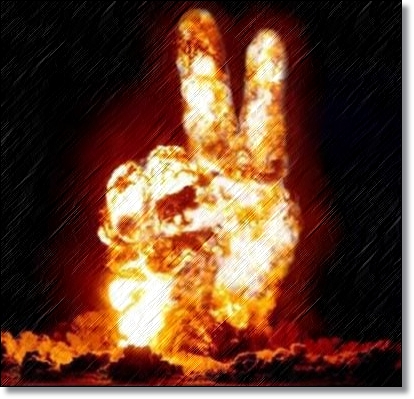Kenya: Peace and Prayer Rallies Place Country on Panic Mode

 |
| Graphics courtesy |
In Kenya, the use of spares such as “Harambee” (let us pull together) and “Nyayo” philosophy (of peace, love and unity) did not prevent the country from hurtling towards the precipice in 2008. The most recent spare parts are “peace movements” and “prayer rallies.” Will these address the root causes of conflict that bedevil the country in every electoral cycle?
Triggers to conflict in Kenya vary. Underlying causes to conflict include unresolved land issues where land has remained a focal point for ethnic-nation identity and livelihood; the deliberate exclusion of communities from the center of governance processes that skews and limits opportunities from the general populace and disregard of the aspirations of the people as captured in the constitution of Kenya 2010. The elevation of individuals above national aspirations breeds short term focus and conflict.
Harping on prayers and messages of peace without addressing the underlying factors that pit Kenyans against each other simply breeds the fear of chaos and death, making individual Kenyans to escape the responsibility of utilizing their own minds to make right choices. This stance yields irrationality. Irrational thoughts thrown in the mix of competitive electoral politics disconnects individuals from the nationhood anchor to that of ethnicity.
Rev. Dr. Timothy Njoya, Kenya’s luminary, did not preach peace and prayer to counter former President Moi’s excesses. He educated his constituency to rise up against the unjust system. Archbishop Desmond Mpilo Tutu did not use prayer as an end to itself, but urged South Africans to shun injustice and oppression.
Kenya is a young nation-state that requires realistic ethnic endurance mechanics. Peace rallies should not create the “them” vis-à-vis “us” atmosphere when in essence, all Kenyans are in the same soup bowl. All Kenyans must take responsibility to jointly craft a new look nation-state that fulfills its obligations to the citizenry, the region and the world at large. The peace and prayer crusaders should address themselves to free the citizenry from momentary impulses, habits, customs, traditions and opinions of others as the aforementioned prevent Kenyans from making informed choices.
While the motivation that drives the prayer peace crusaders may be genuine, it numbs Kenyans’ vigilance, will and perception against the forces of tyranny. It forces the citizenry to surrender the urgent quest to make right the existing wrongs, nurture the culture of rational thought and confront issues in a structured manner. The resultant effect is a feel good factor which at the slightest provocation would precipitate an orgy of violence never countenanced before.
Kenyans should keep track of the technocrats behind each political party system. Driven by the fear of losing their political godfathers and mothers, such technocrats misuse their proximity to power to sustain the status quo at all costs. Hosting peace rallies plays into their strategies. They would rather have an impotent citizenry that does not question when the country’s constitutional aspirations are violated. In a situation where the technocrats are not in power, the temptation to employ unorthodox methods to win power overrides the quest for peace.
Voters should scrutinize the electoral tools for purposes of building confidence in election outcomes. The 2007/08 electoral debacle was partly attributable to the fact that Kenyans did not have confidence in the tools at the time. Under the Nyayo system, the country was treated to episodes where political aspirants with most votes would be declared losers. The recent party primaries also exhibited such scenarios. Peace rallies should on top of educating voters, push to get solid undertaking from the Independent Electoral and Boundaries Commission (IEBC) that their systems are tamperproof. Its only when the electoral tools are beyond reproach that it becomes easy to prepare competitors to learn how to manage both victory and defeat.
Individual Kenyans should take full responsibility and shun pointing fingers at politicians. Ethnic diversity should be celebrated as a great asset as opposed to a liability. Individuals should not take cover in ethnicity to mobilize against other voters.
Kenya is not only migrating from analogue to digital broadcast system; but also from perceptions of a judicial system that holds the entire community guilty of a crime committed by one individual to that of holding respective individuals accountable. Kenya deserves a brand new radiator that anchors responsibility on an individual as opposed to some ethnic or amorphous group.
By James Shikwati
The author james@irenkenya.org is Director of Inter Region Economic Network and Publisher of The African Executive Magazine. Twitter @shikwatijames
